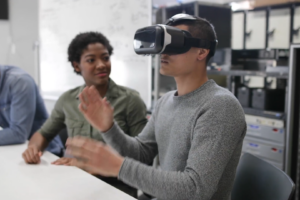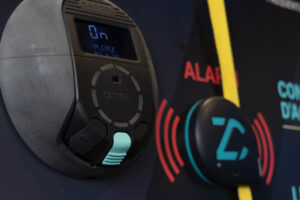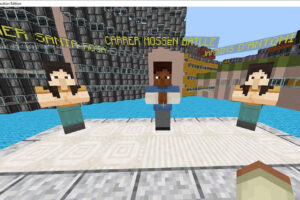
PERMEPSY: A Predictive Tool to Personalise Psychosis Treatment
July 29, 2024
VALSUCANEM: New green composite materials from the valorisation of hemp by-products
September 12, 202413/09/2024
The DISCOVER project aims to revolutionize the construction and demolition industry by developing an advanced system for the autonomous, synchronous, and continuous identification and analysis of materials in end-of-life built environments.
The Universitat Politècnica de Catalunya - BarcelonaTech (UPC) coordinates the Digital, autonomous, Intelligent and Synchronous system for Continuous identification, Optimization and Value Extraction of Resources from the end-of-use built environment (DISCOVER) project, which involves a multidisciplinary team formed by the Center for Industrial Equipment Design (CDEI), the Geophysics and Earthquake Engineering (GiES) research group, and the Structural and Materials Technology (ATEM) research group. The project will provide data-driven insights, to key stakeholders, including academic performers, and, along with construction industry representatives to make deconstruction more efficient, optimize the use of resources, improve the environmental footprints and enhance the circularity of construction and demolition. This will unlock the potential of end-of-life built works, which will become material banks.
The expected outcomes of DISCOVER include an autonomous robotic platform coupled with continuous identification tools to scan built works and provide synchronous quantitative and qualitative data from different materials. Artificial intelligence algorithms will allow a rapid analysis of the properties and characteristics of components and will feed into the automated scan-to-BIM model creation. The multidimensional BIM, including selective demolition processes, labour productivity, and technical planning, will become a Digital Twin of the demolition site optimized by social, economic, and environmental multi-criteria assessments. This approach will highly contribute to significant increase in the supply of traceable and sustainable construction materials and products for enhancing their wider market acceptance, following the waste hierarchy.
The ambitions of the project are:
- Developing rapid and autonomous on-site material identification methods
- Advancing robotics in pre-demolition inspection and identification
- Unlocking the potential of AI and BIM-based tools for sustainable deconstruction
- Transforming demolition practices through decision-making tools for optimal resource recovery
- Pioneering circular economy in construction by bridging multi-LCA/LCC, demolition digitalization, and traceability of recovered products
- Integrating deconstruction and construction: increasing direct material reuse in construction
DISCOVER will impact various perspectives:
- Economic - Enhancing efficiency, cost savings, and reduced labour in construction and demolition.
- Environmental - Reducing Construction and Demolition Waste (C&DW), lowering landfill rates, and decreasing CO2 emissions related to waste management and construction materials.
- Social - Influencing policymakers to create evidence-based regulations for sustainable construction and waste management.
- Scientific - Accelerating research in sustainable construction and waste management.
DISCOVER Consortium and budget
The project is funded by the European Union (Horizon Europe) with a total budget of €5,997,208.50. It began in June 2024 and will span four years. The DISCOVER consortium, which includes CIT UPC, comprises 14 partners (a balanced mix of SMEs, large companies, academia, research institutions, and associations) from eight EU countries (Belgium, France, Germany, Greece, Netherlands, Poland, Portugal, Spain).


You want to know more?
Related Projects
- The Visualisation, Virtual Reality and Graphic Interaction Research Group (ViRVIG) at the Universitat Politècnica de Catalunya - BarcelonaTech (UPC) has participated in the XR4ED project, an initiative that connects the educational technology (EdTech) and Extended Reality (XR) sectors, with the aim of transforming learning and training across Europe.
- The inLab FIB at the UPC has collaborated with Lizcore® for the development of a proof of concept based on artificial intelligence to improve safety in climbing with autobelay devices. The system allows the automatic and accurate detection of risk situations before starting a route.
- Researchers from the Centre for Image and Multimedia Technology of the UPC (CITM) and from the DiCode research group (Digital Culture and Creative Technologies Research Group) of the Universitat Politècnica de Catalunya – BarcelonaTech (UPC) have worked on the project The Eyes of History, an initiative of the Catalan Agency for Cultural Heritage that offers an immersive view of Catalan cultural heritage. It is especially aimed at the first and second cycles of secondary education and was created to bring heritage into the classroom. Its goal is to bring the history and monuments of Catalonia closer in a vivid and innovative way, using tools such as virtual reality and new museographic narratives.
- City and Play is a social action project coordinated by researchers from the Centre for Image and Multimedia Technology (CITM) and the DiCode research group (Digital Culture and Creative Technologies Research Group) of the Universitat Politècnica de Catalunya – BarcelonaTech (UPC), the Universitat Oberta de Catalunya (UOC) and the University of Barcelona (UB), and funded by Barcelona City Council. The aim of the project is to promote civic competences and reflection on the urban environment among adolescents through the creation of an open framework that uses methodologies based on play, co-creation and storytelling.




